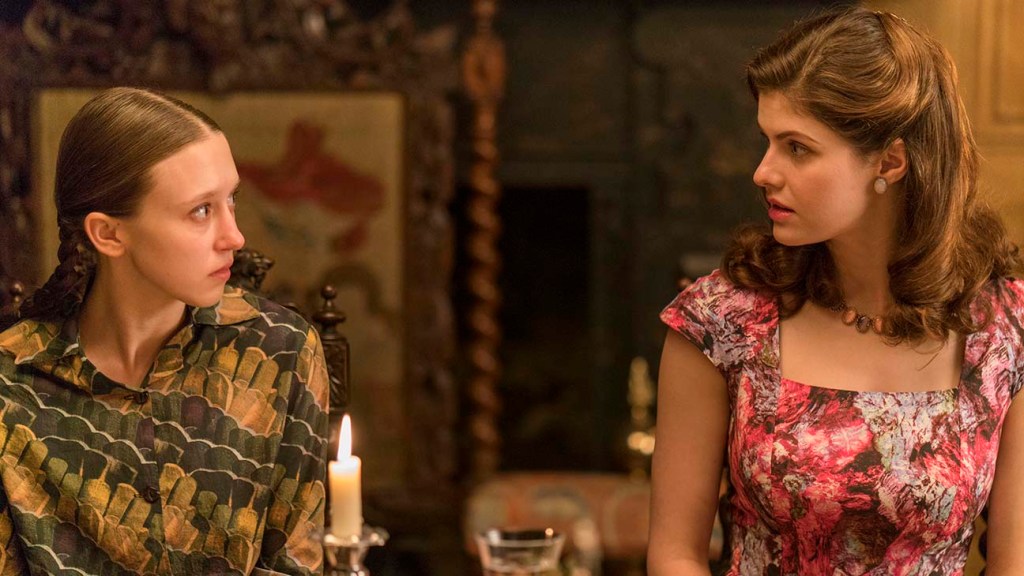Warning for mention of childhood SA later in this post.
Earlier this month, I finally got around to watching Disney’s Encanto, after the song Surface Pressure was all over my Tiktok for you page since Encanto first came out. For those of you who don’t know, Encanto tells the story of the Madrigal family who has powers, or ‘gifts’ as they are referred to in the film, that allows them to help their community. By examining each character’s powers and interactions, particularly with Abuela, Encanto explores intergenerational trauma, particularly that of immigrant families.
The film opens with Abuela telling Mirabel how their village came to be because they had to flee their old village after it was invaded. Each gift the family members have could be used to prevent another invasion, but that’s an entirely different blog post for another day. The main character is Mirabel, the only Madrigal without a gift, as she tries to save their Casita, or house, from destruction, which is also causing the Madrigals to lose their powers. One of Mirabel’s sisters, Luisa, has super strength. She’s “the strong one”, as she describes in the first line of her ‘want’ song, a trope in which a character has a song that describes their wants and goals. Luisa’s want song describes the pressure she feels having to be the strongest member of the community, with everyone relying on her. Later, Luisa sings about how strong she is, but on the inside, she is very anxious and wishes she could shake off the expectations placed on her so she could just relax. While not being the oldest of Mirabel’s siblings, Luisa’s song Surface Pressure relates to the experiences of being the oldest sibling, particularly the oldest sister.
Around the same time I watched Encanto, I also attended a conference to celebrate what would have been Shirley Jackson’s 105th birthday. I attended as I had studied We Have Always Lived in the Castle in my second-year seminar on Gothic Literature, as well as studying some of her short stories in both primary and secondary school, with the first one of her works I read being The Lottery in primary school. We Have Always Lived in the Castle, published in 1962, was the last work published by Jackson before her death in 1965. The novel focuses on Mary Katherine Blackwood, or Merricat, and her older sister Constance. For those who have not read the book (which I highly recommend, and also warning for possible spoilers for those who haven’t read the book and are planning to), the plot follows the aforementioned sisters and their uncle Julian, the only survivors of a tragedy that occurred six years before the events of the novel. The rest of the Blackwoods were poisoned with arsenic which was hidden in the sugar they sprinkled over their dessert, and, as Constance was the only one not to use the sugar (Merricat had been sent to bed without dinner that night, and Julian had only used a small amount, so he ended up disabled rather than dead), she was arrested for the murder. However, due to a lack of evidence, she was acquitted. Despite this, the townspeople still believe she killed her family and, as such, view the Blackwood sisters as outsiders and are often incredibly rude to them. Constance is so affected by the townspeople behaviour that she will not go further than the garden of their house.
As Constance will not leave the house, her life becomes just looking after the home and Merricat and Julian. She becomes somewhat of a mother figure to Merricat. Constance keeps everything in order within the house and takes care of Uncle Julian like a mother looking after a child. In the 2018 film Constance, played by Alexandra Daddario, is constantly presented as being perfectly put together and looking like the perfect 60s housewife. This directly contradicts Merricat, who wears shirts and pants, looking more like an 18-year-old today than would have been expected in the sixties.

While it is implied that both Constance and Merricat were abused by their father in the book, this implication is made explicit in the film, where Charles, played by Sebastian Stan, is dragging Merricat upstairs to force her to bed for disrespecting him. Merricat struggles against this and causes Charles to fall, landing on top of her in a way that triggers Merricat into a flashback of her father being in the same position on top of her. While this is happening, Constance is crying at the kitchen table, able to see and hear everything, implying she is experiencing a similar flashback. One can gather that the reason Constance essentially moulded herself into being the perfect wife was in an attempt to protect Merricat from their father’s abuse, even if she failed. Even after her family’s deaths, Constance continues to play this role, in the previously mentioned caretaking of Julian, but also in continuing the family tradition of making pots of preserves every year and storing them in the basement. It is not until it is only until Constance and Merricat are left in the ruins of their former home that Constance can finally leave that role, choosing instead to let go and get dirty and live more like Merricat.
